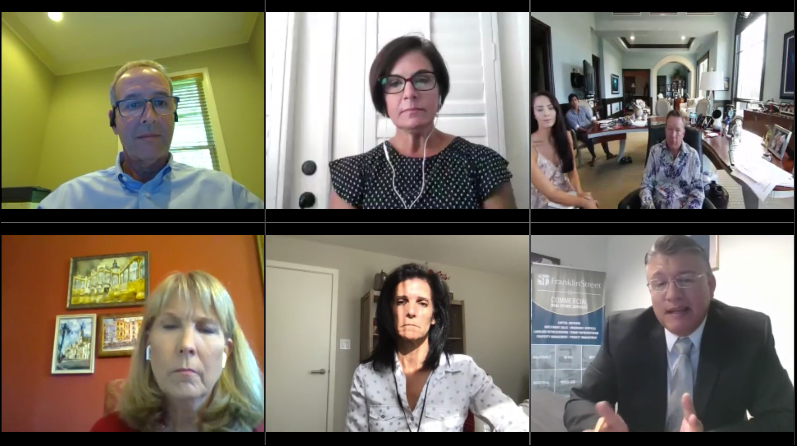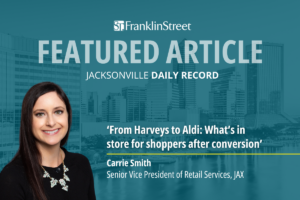Commercial real estate lenders have remained timid as retail businesses in the Central Florida market navigate how to operate successfully during the COVID-19 crisis. As of this writing, Orange County had the 23rd most cases by county in the United States with 36,400 positive coronavirus cases and 378 deaths, according to Johns Hopkins University (JHU).
The metro Orlando county is currently in Phase II of the Sunshine State’s reopening plan, which includes allowing restaurants to bump up capacity from 50 percent in Phase I to now 75 percent; retailers can operate at full capacity; fitness centers can operate at 50 percent capacity; and bars can operate at 50 percent of standing room capacity. Phase II for most of the state’s counties went into effect June 5.
While residents and businesses have begun the process of returning to pre-pandemic shopping norms, Chuck Whittall, president of Unicorp National Developments, said banks are still cautious.
“There is a lot of fear on the credit side of the world,” said Whittall. “We experienced it after 9/11, in 2009 and we are experiencing it again now.”
Orlando-based Unicorp broke ground last month on O-Town West, a $1 billion mixed-use development along Interstate 4 and three miles north of Walt Disney World Resort. The 82-acre project will have 250,000 square feet of retail space, which is 92 percent preleased.
Whittall’s comments came during InterFace Conference Group’s Central Florida Retail Outlook webinar, hosted by Shopping Center Business and Southeast Real Estate Business on Monday, Aug. 31. Other panelists included Ralph Conti, principal at RaCo Real Estate; Cindy Schooler, managing director of SRS Real Estate Partners; Ivy Greaner, chief operating officer of InvenTrust Properties; Kurt Keaton, president of real estate services at Franklin Street; and moderator Beth Azor, founder and owner of Azor Advisory Services.
Lenders are hesitant due to the uncertainty of the retail market as many retailers struggle to find their footing amid slumping sales. Lenders are worried about their borrowers being able to make their mortgage payments, especially if the shopping centers being financed have tenants that are deferring their monthly rent.
Keaton echoed Whittall’s statement about apprehension in the capital markets, adding that the economy is waiting on lenders to open back up for business.
“A lot of the single-tenant deals have continued to move forward out there on the investment sale side,” said Keaton. “The real holdback right now on the grocery-anchored shopping centers is on the lender side. As [lender balance sheets] get figured out and loosen up, that’s going to be an important contingency as we move forward and businesses start to open up, not just in Central Florida, but across the Southeast.”
Read the full recap or watch a replay of the webinar from Shopping Center Business.





